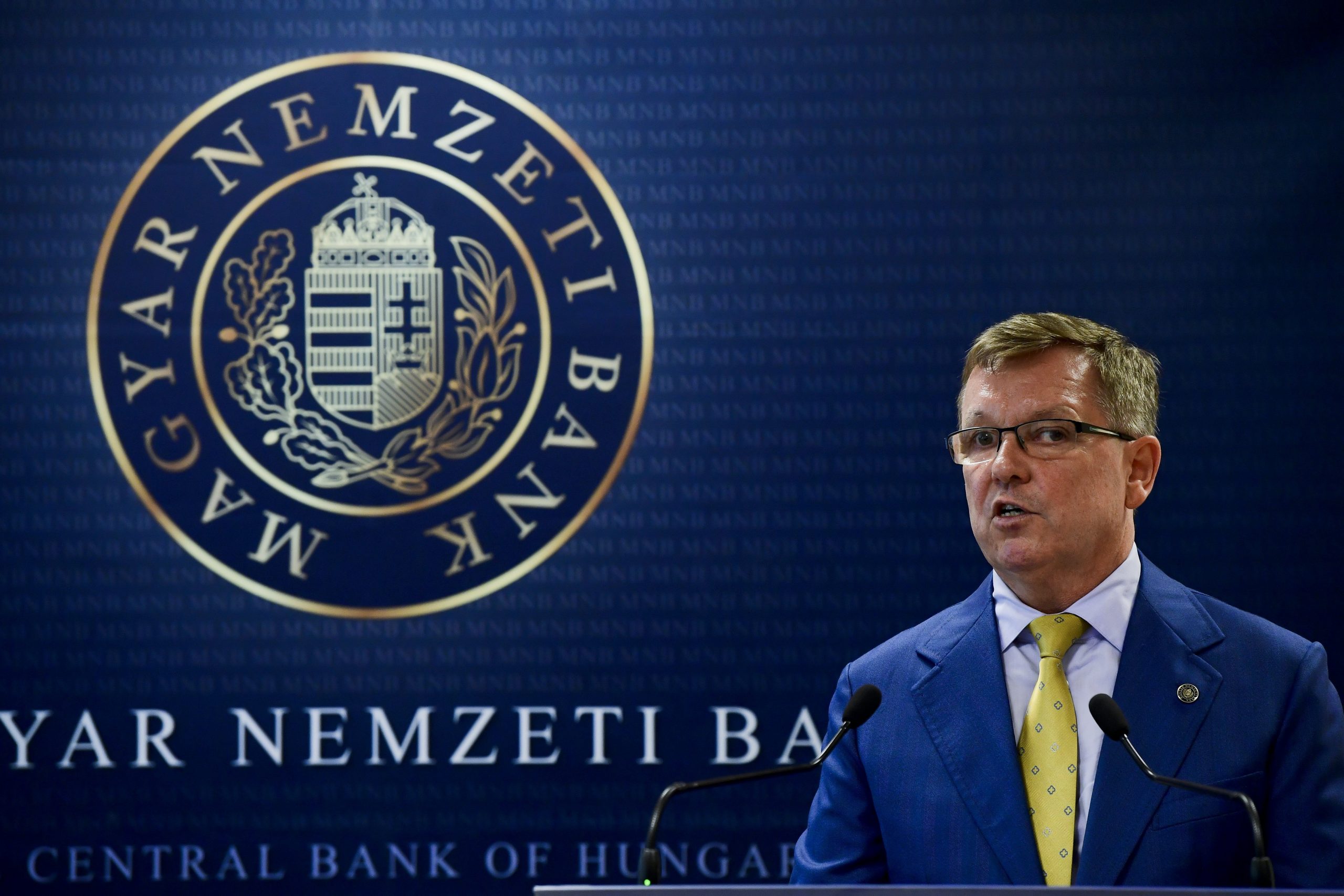
Hungary’s sustainable convergence with more developed economies could be inhibited if the government continues to rely on the construction sector to prop up growth once the economy recovers, György Matolcsy wrote in an article published on Monday.
The real question is whether the government continues to follow a “sweeping” fiscal policy or whether it invests smartly in people’s skills, the National Bank of Hungary (NBH) governor wrote in the online edition of pro-government daily Magyar Nemzet.
“This is not just about 2022, but about the entire decade,” he said, referring to next year’s general election.
Related article
Central Bank Head Matolcsy: Hungary Does Not Have a Unified and Clear Vision
Today, Hungary does not have a unified and clear vision, the head of the Hungarian National Bank György Matolcsy criticized the government’s economic policy in an article on Növekedés.hu. Matolcsy claims that even though there are many examples of catching up to do in front of us, we do not recognize them. The political leaders […]Continue reading
Matolcsy proposed changing the 2022 budget, insisting that the share of “smart investments” needed to generate knowledge-intensive growth was too low in the bill approved last month. He also said the government should lower the current budget deficit target of 5.9 percent of GDP and return to targeting a 3 percent deficit in parallel with reductions to the public debt.
Around half of the government investments in next year’s budget are tied up in construction, he said, noting that between 2017 and 2020 Hungary saw the largest increase in the share of construction investments in the European Union. Matolcsy said it was construction projects rather than “smart investments” that were driving up Hungary’s investment rate. Hungary also has the largest share of government investments of all EU member states, he noted.
The state is investing in steel and concrete rather than skills, institutions and brains”
Matolcsy said that because of the shortages plaguing the construction sector, the government’s many construction projects were generating high inflation in the industry, aggravated by inflation imported from abroad.
Related article
Central Bank Head Matolcsy: Hungary Should Follow Estonia's Example
The head of the National Bank of Hungary, György Matolcsy, recently criticized the government’s approach towards economic policy, claiming that currently the country does not have a unified and clear vision for the future. He added on to this line of thought by arguing that the Estonians performed far better than Hungary in terms of […]Continue reading
All sources of growth are important, he said, but the most important source for sustainable convergence with more developed economies was productivity growth, he added. The key here was digital investment, Matolcsy said. The low level of hi-tech investments couple with outsized construction investments, he said, sucked away resources for productivity growth, he said.
Featured photo by Szilárd Koszticsák/MTI


